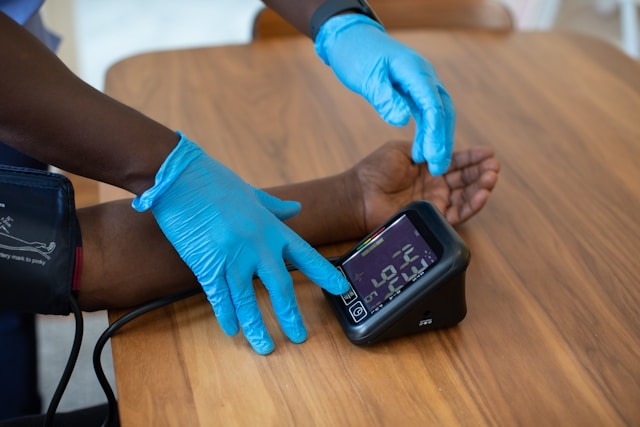When we hear the term high blood pressure, most people think of older adults. But in recent years, there’s been a worrying rise in hypertension among young adults, especially in developing countries like Nigeria. Unlike many visible diseases, high blood pressure (hypertension) is often called the silent killer — because many people don’t realize they have it until it causes serious problems.
In this article, we’ll explore what high blood pressure really is, how it affects young people, and what you can do to stay healthy and protected.
🔍 What Is High Blood Pressure?
Blood pressure is the force of blood pushing against the walls of your arteries. It’s measured using two numbers:
Systolic pressure (top number) – when your heart beats
Diastolic pressure (bottom number) – when your heart rests
A normal blood pressure reading is around 120/80 mmHg. Hypertension is diagnosed when readings consistently stay above 140/90 mmHg.
🚨 Why Should Young Adults Care?
High blood pressure used to be a disease for people over 50. But with modern lifestyles — fast food, stress, lack of exercise — it’s becoming more common in people as young as 18 to 35 years old.
Here’s why that’s dangerous:
No symptoms: Most people don’t feel any different until damage has already begun.
Organ damage: It can quietly damage your heart, kidneys, eyes, and brain over time.
Stroke risk: High blood pressure is one of the biggest causes of stroke — even in people under 40.
Heart attack: It forces the heart to work harder, increasing the chance of heart failure or attack.
⚠️ Common Causes in Young People
Several lifestyle and health factors are contributing to rising hypertension cases in youth:
- Poor diet – High intake of salty, processed, or fatty foods.
- Lack of exercise – Many young adults spend hours sitting with little physical activity.
- Obesity – Excess weight increases the strain on the heart and blood vessels.
- Stress – School pressure, job hunting, financial burdens — stress levels are rising.
- Smoking and alcohol – These weaken the blood vessels and raise blood pressure.
- Genetics – If hypertension runs in your family, you’re at higher risk.
🩺 How to Know If You’re at Risk
Because high blood pressure often has no obvious signs, regular checks are essential. Here’s what you should do:
Get your blood pressure checked at least once a year — more often if you have risk factors.
Watch for early warning signs like headaches, blurred vision, chest pain, or dizziness.
Know your family medical history — it could help you prevent issues early.
✅ Healthy Habits That Help
The good news? Hypertension is preventable and manageable, especially when caught early. Here are some lifestyle tips:
- Eat Smart
Choose fruits, vegetables, and whole grains.
Reduce salt, sugar, and oily foods.
Avoid fast food and carbonated drinks.
- Exercise Regularly
Aim for 30 minutes of physical activity 5 days a week.
Walking, jogging, dancing, or sports all help.
- Manage Stress
Practice relaxation techniques like deep breathing, journaling, or talking to a trusted friend.
Reduce screen time and avoid late-night scrolling.
- Limit Alcohol and Avoid Smoking
These both raise blood pressure and damage heart health over time.
- Sleep Well
Get at least 7–8 hours of restful sleep each night.
Poor sleep affects hormone levels and blood pressure control.
📋 When to See a Doctor
Even if you feel healthy, you should consult a doctor if:
Your blood pressure is consistently high
You have a family history of hypertension or heart disease
You experience chest pain, fatigue, or swelling in your legs
Early medical advice can help you avoid long-term complications.
🧠 Final Thoughts
High blood pressure may not seem like a youth problem — but it’s becoming one. If you’re in your 20s or 30s, now is the time to take it seriously. Protecting your heart and arteries now means living longer, stronger, and healthier later.
Prevention is always better than cure. Start with small changes today, and your body will thank you tomorrow.

